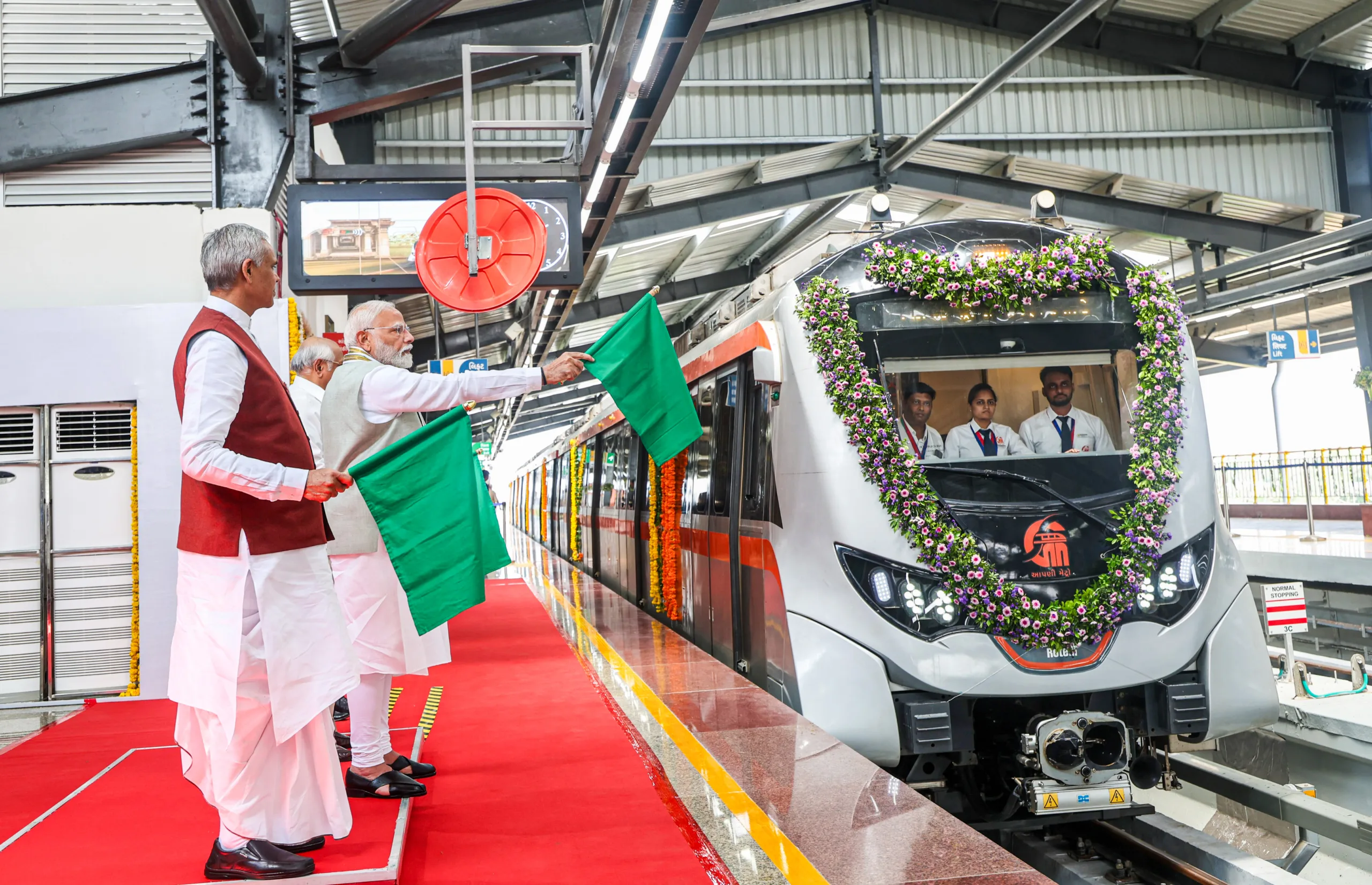Paromita Das
New Delhi, 7th June: In a visit marked by both symbolism and statecraft, Prime Minister Narendra Modi journeyed to Jammu and Kashmir in the wake of one of the deadliest terror attacks in recent years — the Pahalgam assault that tragically claimed 26 innocent lives. Yet, his message from the region wasn’t only one of grief or condemnation; it was a pronounced declaration of resolve, unity, and future-forward development.
Amid the sweeping green valleys and the resilient spirit of the people of Kashmir, PM Modi issued a direct and unambiguous rebuke to Pakistan. He accused the neighboring country of systematically attempting to stir unrest within Bharatiya borders, while reaffirming that Bharat would neither be intimidated nor diverted from its twin goals: peace and progress.
The Tragedy of Pahalgam and Bharat’s Measured Response
The terror attack in Pahalgam struck a nerve across the nation. As 26 lives were lost to extremist violence, the gravity of the situation demanded more than condolences. It required a response — one that was strategic, firm, and focused on deterrence.
In direct retaliation, Bharat launched Operation Sindoor, a calculated and high-precision military initiative. Over nine terror camps across Pakistan and Pakistan-occupied Kashmir were targeted in air and ground strikes. These camps, long believed to be breeding grounds for cross-border militancy, had operated with impunity under state protection. The strikes were Bharat’s emphatic message: terrorism will not be tolerated, and provocations will be met with precision and strength.
This operation wasn’t just military action; it was geopolitical communication. It showed the international community that Bharat, while committed to peace, retains the right to self-defense, especially when civilian lives are at stake.
A Tale of Two Agendas: Provocation and Progress
While Bharat has often been the target of ideological and militant hostility, it has simultaneously pursued a contrasting vision — one of development and inclusion, particularly in Jammu and Kashmir. PM Modi’s visit also showcased this other side of the coin.
- Infrastructure as a Catalyst for Stability
Among the key highlights was the inauguration of the Vande Bharat Express between Katra and Srinagar. This isn’t merely a new train service; it symbolizes Kashmir’s deeper integration into the national framework — physically, economically, and emotionally.
The express train is expected to boost tourism, a vital economic sector in the region. According to data from the Ministry of Tourism, Jammu and Kashmir saw a 300% increase in domestic tourist arrivals in 2023 compared to 2019, a direct result of improved safety and infrastructure.
PM Modi also inaugurated new railway lines that pass through the world’s highest railway bridge over the Chenab River. This marvel of engineering not only shortens travel time but enhances connectivity with remote areas, making healthcare, education, and economic opportunities more accessible.
- Economic Rejuvenation and Youth Empowerment
Kashmir’s youth, once seen as vulnerable to radicalization, are now increasingly participating in Bharat’s economic and educational ecosystem. According to recent government statistics, entrepreneurship programs under schemes like Startup India have led to the registration of over 1,200 startups from the Union Territory since 2021.
Modi’s administration has also pushed for digital inclusion. With the rollout of 4G and soon 5G services across all districts, Kashmir’s remote regions are being brought online — connecting young minds to global opportunities.
The Political Signal: Unity is Non-Negotiable
PM Modi’s speech from the valley had undertones that transcended military and infrastructure updates. It was a reiteration of Bharat’s stand: that national unity is sacrosanct, and no external force can dilute the spirit of Kashmiriyat — the centuries-old ethos of tolerance, harmony, and pluralism that defines the region.
He said passionately, “Pakistan is attacking both the livelihood of Kashmiris and the very soul of Kashmiriyat. They are trying to disturb our peace, but they will not succeed.”
His words struck a chord, especially at a time when geopolitical tensions are rising in South Asia. Modi’s address was not only directed at Pakistan or the citizens of Bharat but also at the global community — positioning Bharat as a mature, resilient, and development-driven democracy that will not yield to fear or fracture.
Strength with Sensitivity is the Right Approach
There are critics who argue that militaristic responses risk escalating conflict. However, in the complex theater of South Asian geopolitics, strength backed by sensitivity is not aggression — it’s prudence. Bharat’s approach, exemplified by its twin strategies of counterterrorism and development, acknowledges that peace is not the mere absence of conflict but the presence of justice, opportunity, and equity.
Where Pakistan continues to rely on asymmetric warfare and ideological incitement, Bharat’s strategy banks on inclusion, innovation, and investment.
A Future Anchored in Resolve and Renewal
PM Modi’s visit to Jammu and Kashmir was more than a political or administrative exercise. It was a declaration of purpose. It reinforced Bharat’s refusal to let terrorism derail its mission of harmony and progress. It highlighted a vision of Kashmir not as a conflict zone, but as a crown of development, connectivity, and culture.
By responding with both force and foresight, Bharat is setting a precedent — that national security and regional development must go hand in hand, and that in the face of provocation, the path forward lies not in fear but in resilience.

